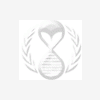.
S O U R C E : PR Newswire
The Phase 2 study will assess the safety and efficacy of Longeveron's stem cell treatment under Japan's accelerated regulatory pathway for regenerative medicine.
MIAMI, June 1, 2020 /PRNewswire/ -- Longeveron LLC announced today that Japan's Pharmaceutical and Medical Devices Agency (PMDA) (the Japanese agency akin to the United States' Food & Drug Administration) approved a Clinical Trial Notification (CTN) application (akin to an Investigational New Drug Application or "IND" in the US regulatory system), approving the initiation of a Phase 2 clinical trial evaluating the safety and efficacy of Longeveron's Mesenchymal Stem Cells (LMSCs) for the treatment of Aging Frailty in Japanese patients. This is another key milestone for Longeveron's Aging Frailty program, which includes two ongoing Phase 2 clinical trials in the U.S.
"We are extremely pleased to achieve this significant milestone," said Geoff Green, President of Longeveron. "This study is designed to determine whether the transplant of donor-derived mesenchymal stem cells can improve healthspan in mild to moderately frail patients, thereby improving functionality and potentially lowering their risk of disability, and dependence on others for care."
Aging Frailty is a common, but reversible, life-threatening geriatric condition affecting millions of Japanese over the age of 65. Frail individuals are vulnerable to adverse health outcomes compared to their age-matched peers despite sharing similar comorbidities and demographics. Clinically, frailty manifests as a combination of symptoms that may include loss of muscle and decreased strength, slowed walking (sarcopenia), lower activity and energy levels, poor endurance, nutritional deficiencies, weight loss and fatigue. Collectively, these lead to overall decline in functionality, and increased risk of disability, dependency, and death.
"The biology of frailty is complex, and includes diminished stem cell activity, reduced ability to repair and regenerate tissue, and immunosenescence (deterioration of the immune system) and chronic systemic inflammation," said Dr. Anthony Oliva, Senior Scientist at Longeveron. "LMSCs have multiple mechanisms of action that can potentially address all of these issues, and thus make them extremely attractive as a therapeutic candidate for the unmet medical need of Aging Frailty."
The planned study is an investigator-initiated, randomized, double-blind, placebo-controlled design, and will be conducted at Juntendo University Hospital (Tokyo) and Japan's National Center for Geriatrics and Gerontology (NCGG) in Nagoya. The study's Principal Investigator, Dr. Hidenori Arai, President of the NCGG, commented that "Japan has one of the oldest and fastest aging societies in the world, with nearly 30% of Japan's citizens over the age of 65. Preventing and reversing functional decline associated with frailty is one of the nation's top priorities, and Longeveron's regenerative medicine approach is an exciting and innovative potential therapeutic option. With the disproportionate infection and mortality rate of older people with COVID-19 and Influenza infection, it is critically important to rapidly test treatments that may be effective."
In Japan, the "Pharmaceutical and Medical Device Act" and the "Act on the Safety of Regenerative Medicine" came into effect in 2014. Under this system, a "Time-limited Conditional Approval" option exists, which allows a manufacturer to conditionally sell regenerative medicine products while proceeding with its Phase 3 clinical trial.
Longeveron's Aging Frailty Research Program
Longeveron sponsors the most extensive and advanced Aging Frailty clinical research program in the world, with more than 200 patients treated with LMSCs worldwide. In the U.S., two clinical trials are currently ongoing:
- Study 001-03: Phase 2, multicenter, randomized, double-blind placebo-controlled 150 subject study of a single intravenous infusion of 25 million, 50 million, 100 million, 200 million LMSCs or placebo. The primary objective of the study is to assess the effect of LMSC treatment on exercise tolerance and endurance via the six-minute walk test (6MWT). Additional endpoints include gait speed, grip strength, short physical performance battery (SPPB), Performance Oriented Mobility Assessment (POMA) fear and risk of falling, depression, sexual function, cognition, and various patient reported outcomes (PROs) and activities of daily living (ADLs), and blood-based biomarkers. This study, which completed enrollment in January 2020, is sponsored in part by a $3.8 million Small Business Innovation Research (SBIR) Grant from the National Institute of Aging (NIA), as part of the Geroscience initiative focused on preventing and treating age-related conditions, functional decline, and disability.
- Study 00-0000-03: Phase 1/2 multicenter, randomized, double-blind placebo-controlled trial that enrolled 22 subjects in the open-label Phase 1, and, to date has enrolled 40 subjects in the randomized, double-blind Phase 2 portion of the trial. The Phase 2 portion is designed to assess whether LMSC infusion can improve the immune response in the target population compared to subjects receiving placebo infusion. Frailty is associated with poor response to influenza vaccination and higher rates of flu due to weakened immune systems.
About LMSCs
Longeveron Allogeneic Mesenchymal Stem Cells (LMSCs) is a regenerative medicine product sourced from the bone marrow of young healthy adult donors. LMSCs are culture expanded under the FDA's current good manufacturing practices (cGMP) to high standards, and maintained as individual "off-the-shelf" doses.
About Longeveron LLC
Longeveron (www.longeveron.com) is a regenerative medicine therapy company founded in 2014. Longeveron's mission is to provide biological solutions for aging-related diseases and life-threatening conditions, and is dedicated to developing safe and effective cell-based therapeutics for unmet medical needs such as Aging Frailty, the Metabolic Syndrome, Alzheimer's Disease, Acute Respiratory Distress Syndrome (ARDS) from COVID-19 infection, and congenital heart defects in children (hypoplastic left heart syndrome).
